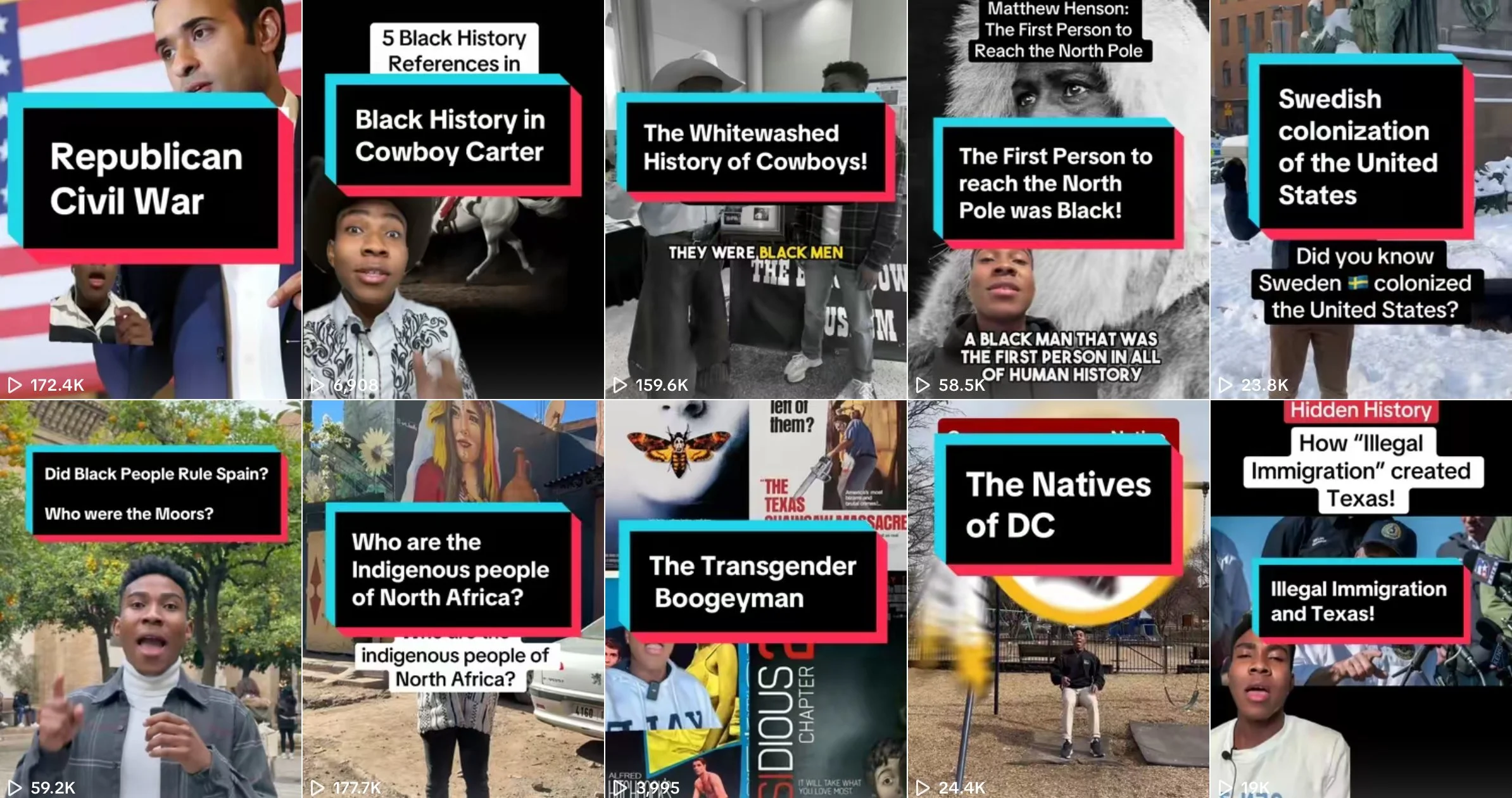The Value of “Edutainment” in an Era of Disengagement & Censorship: A Survey of Kahlil Greene
Some recent video’s from Kahlil Greene’s TikTok account.
At just 25 years old, Kahlil Greene has a Peabody Award, two Emmy nominations, and over one million followers across platforms where he draws attention to hidden histories, like Black cowboys or the abuse of Iraqi prisoners at Abu Ghraib, in order to better young peoples’ understanding of the world around them. Greene frequently covers the same stories, in different ways, across his various accounts. On TikTok, he knows to be brief and engaging. On Twitter, he goes for shock value. On Substack he is a wordsmith. It is clear that he knows what each algorithm wants, showcasing a command of social media that only a “Gen Z Historian” could possess.
As an “edutainer”, Greene frequently ties these histories to current events and popular media, like with his historical analyses of Sinners (2025) and Beyoncé’s Cowboy Carter. In doing so, he connects the past with the present — making history seem fun and relevant to a young audience that might otherwise find it disengaging. Moreover, he seamlessly incorporates scholarly literature into his content, making these works accessible to viewers of all ages, abilities, and education levels. As student engagement in the classroom dwindles and Americans read fewer and fewer books, Greene’s ability to convey information and captivate an audience is an increasingly valuable asset.
Unlike other digital scholars, Greene works outside of academia and is self employed as a content creator. This affords him a sort of freedom when it comes to what content he can cover and how he can cover it – especially in this new age of book bans, censorship, and government overreach. Over the past few years, countless academics have faced personal and professional consequences for statements made on social media, in the classroom, and in public. Especially for those without tenure, the risks of making a Substack post entitled, “Charlie Kirk Helped Make The Internet Insensitive To Unjust Killings” or publishing some of Kirk’s most unsavory remarks heavily outweigh the benefits.
At the high school and elementary level, the situation is even more dire: In Florida, teachers can’t discuss institutional racism or teach the 1619 Project, and in Oklahoma, liberal teachers are being weeded out entirely during the hiring process. While Greene recently expressed worry that he would become the target of the government’s proposed crackdown on left wing voices, his position as a content creator allows him to be far more partisan, provocative, and political than a traditional teaching job would. Thus, in this age of censorship, “edutainers” like Kahlil Greene can be a major educational asset — filling a crucial gap and exposing students to hidden, engaging histories that can no longer be taught in a classroom.
